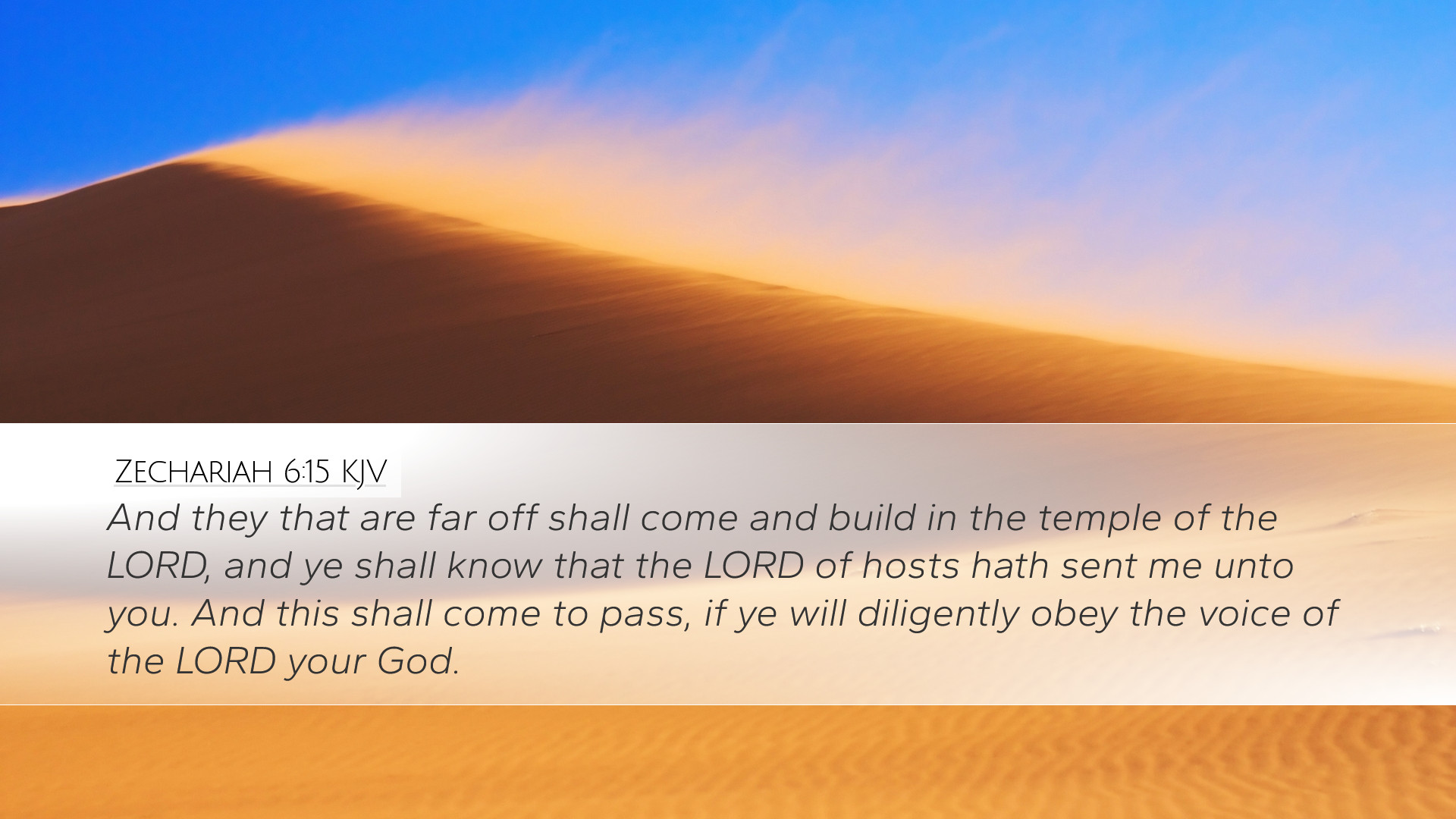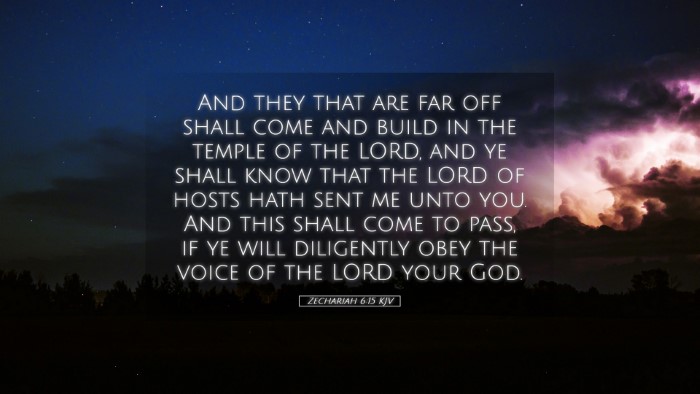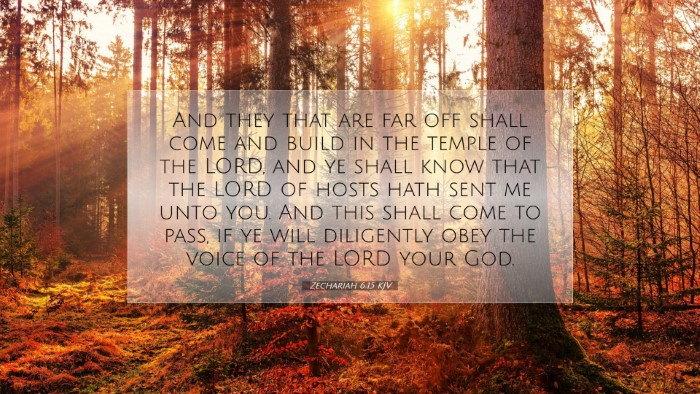Old Testament
Genesis Exodus Leviticus Numbers Deuteronomy Joshua Judges Ruth 1 Samuel 2 Samuel 1 Kings 2 Kings 1 Chronicles 2 Chronicles Ezra Nehemiah Esther Job Psalms Proverbs Ecclesiastes Song of Solomon Isaiah Jeremiah Lamentations Ezekiel Daniel Hosea Joel Amos Obadiah Jonah Micah Nahum Habakkuk Zephaniah Haggai Zechariah MalachiZechariah 6:15
Zechariah 6:15 KJV
And they that are far off shall come and build in the temple of the LORD, and ye shall know that the LORD of hosts hath sent me unto you. And this shall come to pass, if ye will diligently obey the voice of the LORD your God.
Zechariah 6:15 Bible Commentary
Commentary on Zechariah 6:15
Zechariah 6:15 states: "And they that are far off shall come and build in the temple of the Lord, and ye shall know that the Lord of hosts hath sent me unto you. And this shall come to pass, if ye will diligently obey the voice of the Lord your God."
Introduction
The verse stands at the culmination of Zechariah's vision concerning the crowning of Joshua the high priest and the establishment of the Messianic kingdom. It speaks to both the immediate context of Jewish restoration following exile and the eschatological implications for the future of God's people.
Contextual Background
This verse is nestled in a profound revelation concerning the role of God’s sovereignty in rebuilding the temple and the nation of Israel. The prophet Zechariah, in this instance, serves as a conduit for divine communication. According to Matthew Henry, this chapter highlights the reunion of God's people with their lost heritage as the exiles return to their homeland.
The Latter Part of the Verse
The Promise of Restoration
"And they that are far off shall come..."
The "they that are far off" refers not only to the exiled Jews but also to the Gentile nations. Albert Barnes makes a note that this is indicative of an inclusive gospel where nations beyond Israel are welcomed into God's temple. This promises that God’s plans extend beyond the immediate lineage of Abraham, opening a doorway for universal access to Him.
The Building of the Temple
The rebuilding of the temple symbolizes the restoration of worship and the presence of God among His people. Adam Clarke emphasizes that the temple serves as a divine sanctuary wherein people can meet the Almighty. This physical rebuilding parallels a spiritual restoration, indicating a return not solely to ritual but also to covenant relationship.
Divine Assurance
"...and ye shall know that the Lord of hosts hath sent me unto you."
This assurance signifies legitimacy and prophetic authenticity. Matthew Henry notes that the phrase "the Lord of hosts" underscores the sovereignty and authority of God. Thus, it reaffirms that this restoration is divinely sanctioned, instilling confidence in the peoples' obedience to His commands.
The Condition of Diligent Obedience
"...if ye will diligently obey the voice of the Lord your God."
This condition of obedience echoes throughout Scripture. Albert Barnes argues that God's promises are inherently linked to Israel's faithfulness to His word. This sets a precedent for understanding the relationship between divine blessings and human responsibilities; affirming that while God initiates restoration, human obedience is necessary to experience fully its benefits.
Theological Implications
This verse also invites theological reflection regarding the nature of God's kingdom. The invitation extended to those who are "far off" forebodes the New Testament revelation that God’s redemptive plan includes all nations. It heralds the eventual inclusion of Gentiles, as seen in Acts 2 at Pentecost, aligning with Adam Clarke's insights emphasizing the universality of God’s love.
Conclusion
Zechariah 6:15 provides rich theological insights relevant to today’s pastoral and scholarly positions. It highlights God's sovereign purpose in the restoration of His people, the imperative of obedience, and the inclusivity of His salvation. As pastors and leaders reflect on this verse, they are reminded of their role in facilitating the ongoing work of building God's kingdom by preaching obedience and welcoming all nations into the fold of divine grace.
Commentary References
- Matthew Henry: A comprehensive preacher and theologian known for his expository writings on scripture.
- Albert Barnes: Renowned for his critical and practical commentaries that elucidate biblical texts.
- Adam Clarke: A significant biblical commentator noted for his extensive notes reflecting linguistics, context, and theology.


